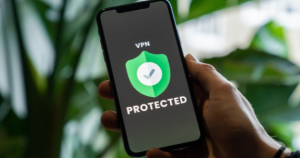Malware
Malicious software, often shortened to malware, can be used by cybercriminals to:
- remotely access your computer or smart device
- use your computer to attack a third party
- install additional software on your software including ransomware
- attempt to log keystrokes and capture sensitive information while the user is typing
- access the microphone and/or webcam on a user’s device.
Malware can infect your device through a variety of methods such as:
- opening a suspicious file
- clicking on a link to a malicious website
- installing modified software that’s been shared for free on the internet
- opening a Microsoft Office document with macros embedded in it.
If you’ve been affected by malware, you might notice your device is running slower than usual, ads popping up on your machine you didn’t expect, or notice websites asking for more details than they normally do to do something like logging in. You may also notice alerts from your anti-virus software telling you about an infection.
Ransomware
Ransomware is a type of malware that locks your device and its files down so you can’t use them without paying a fee.
Ransomware can be very costly to recover from. It commonly uses encryption techniques to lock your files, making them unreadable, and some go one step further and make your computer unusable.
Ransomware infects users’ devices through the same techniques as malware.
In line with the Australian Cyber Security Centre’s guidance, it’s not recommended to pay the ransom if you’re affected by ransomware. There’s no guarantee that paying the ransom will see you get your files back and your computer fixed. You should engage a technical resource for assistance if affected. You can also report ransomware to the Australian Cyber Security Centre.
Some of the ways to reduce your risk of being affected by malware and ransomware include:
- use anti-virus software and keep it updated
- make sure your applications and operating systems are up to date
- regularly back up your files
- use strong passwords
- disable Microsoft Office macros by default and only use macros you know and trust
- regularly run anti-virus scans of your machine and review installed applications for unusual items
- don’t download applications from third-party download sites or peer-to-peer networks
- don’t click on online ads to download applications
- never provide access to your device to someone contacting you randomly. Banks and financial services institutions will never ask for remote access to your devices.





